Merck in partnership with UNESCO, African Union, Ethiopia Ministry of Health, University of Cambridge and Institute Pasteur International successfully held the second edition of UNESCO-Merck Africa Research Summit (UNESCO-MARS) in Addis Ababa, Ethiopia. The aim of the 2016 Summit was to empower Women in Research with the key focus on ‘Infectious Diseases and Women Health’.
During the Summit, nine winners under two categories, ‘Best Young African Researchers Award’ and ‘Best African Women Researchers Award’ were announced. This was the first time the ‘Best African Women Researchers Award’ was being launched.
The Merck online research community (www.merck-cap.com) was also launched at the Summit with the aim of providing a platform that will enable young researchers to share experiences with their peers in Africa and beyond.
The Summit was introduced by Dr Rasha Kelej, Chief Social Officer, Merck Healthcare and Mr. Getchaw Engida, Deputy Director-General, UNESCO and inaugurated by Prof. Dr Frank Stangenberg-Haverkamp, Chairman of the Executive Board and Family Board of E. Merck KG and Hon. Prof. Yifru Berhane, Minister for Health, Ethiopia.
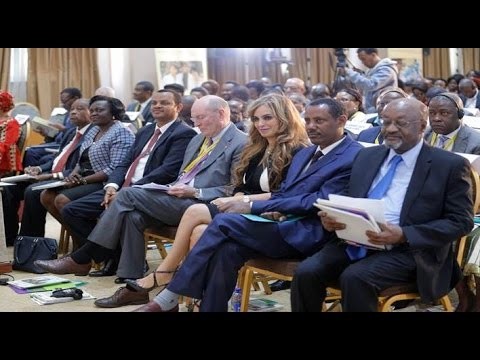
Watch this video of the Summit opening session and ministerial panel discussions
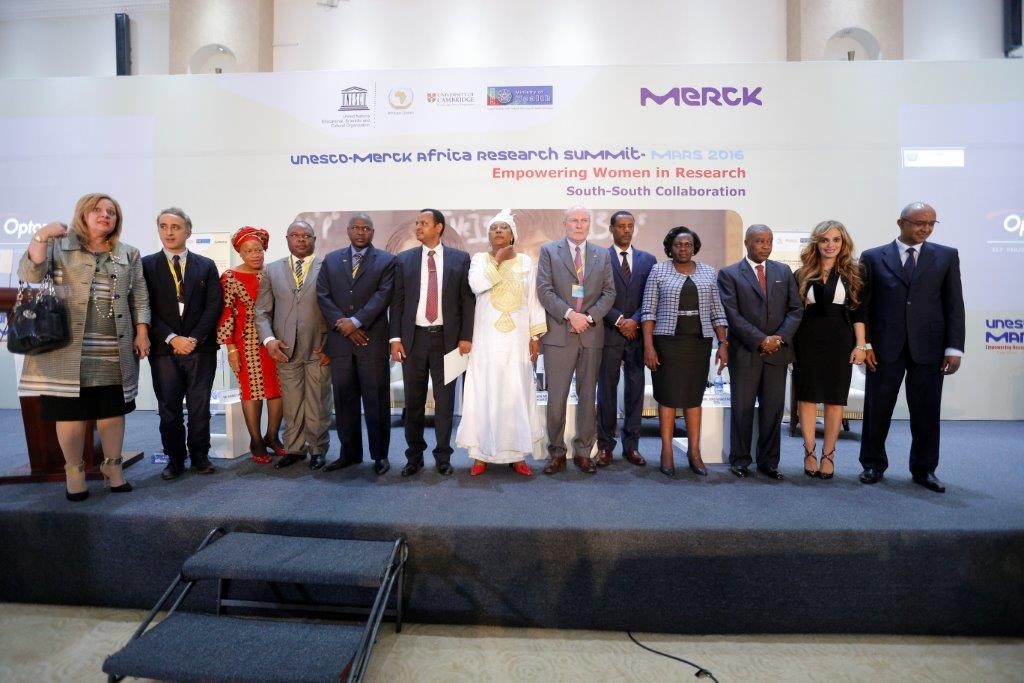
UNESCO-MARS 2016 dignitaries: From left to right – Amany Asfour, President of African Alliance for Women Empowerment; Ahmed Fahmi, Program Director, UNESCO; Julia Cassell, Minister of Gender and Social Development, Liberia; Jesus Engonga Ndong, Minister of Education & Science, Equatorial Guinea; Idi Illiassou Mainassara, Minister of Public Health, Niger; Prof. Afework Kassu Gizaw, Minister of Science and Technology, Ethiopia; Zuliatu Cooper, Deputy Minister of Health and Sanitation, Sierra Leone; Prof. Dr Frank Stangenberg-Haverkamp, Chairman Executive Board and Family Board of E.Merck KG; Prof. Yifru Berhane, Minister of Health, Ethiopia; Sara Opendi, Minister of State for Health, Uganda; Dr. João Sebastião Teta, Secretary of State, Angola; Rasha Kelej, Chief Social Officer, Merck Healthcare; Rasha Kelej, Chief Social Officer, Merck Healthcare and Rashid Aman, Chairman, Kenya National Commission for UNESCO.
“This year’s Summit theme of ‘Infectious Diseases and Women Health’ is informed by the fact that for many infectious diseases, women are at higher risk and have a more severe course of illness than men for many reasons including biological differences, social inequities, and restrictive cultural norms. Therefore, efforts to recognize and reduce health disparities among women have particular relevance for global health”, emphasized Prof. Dr Frank Stangenberg-Haverkamp, chairman of Executive Board and Family Board of E. Merck KG.
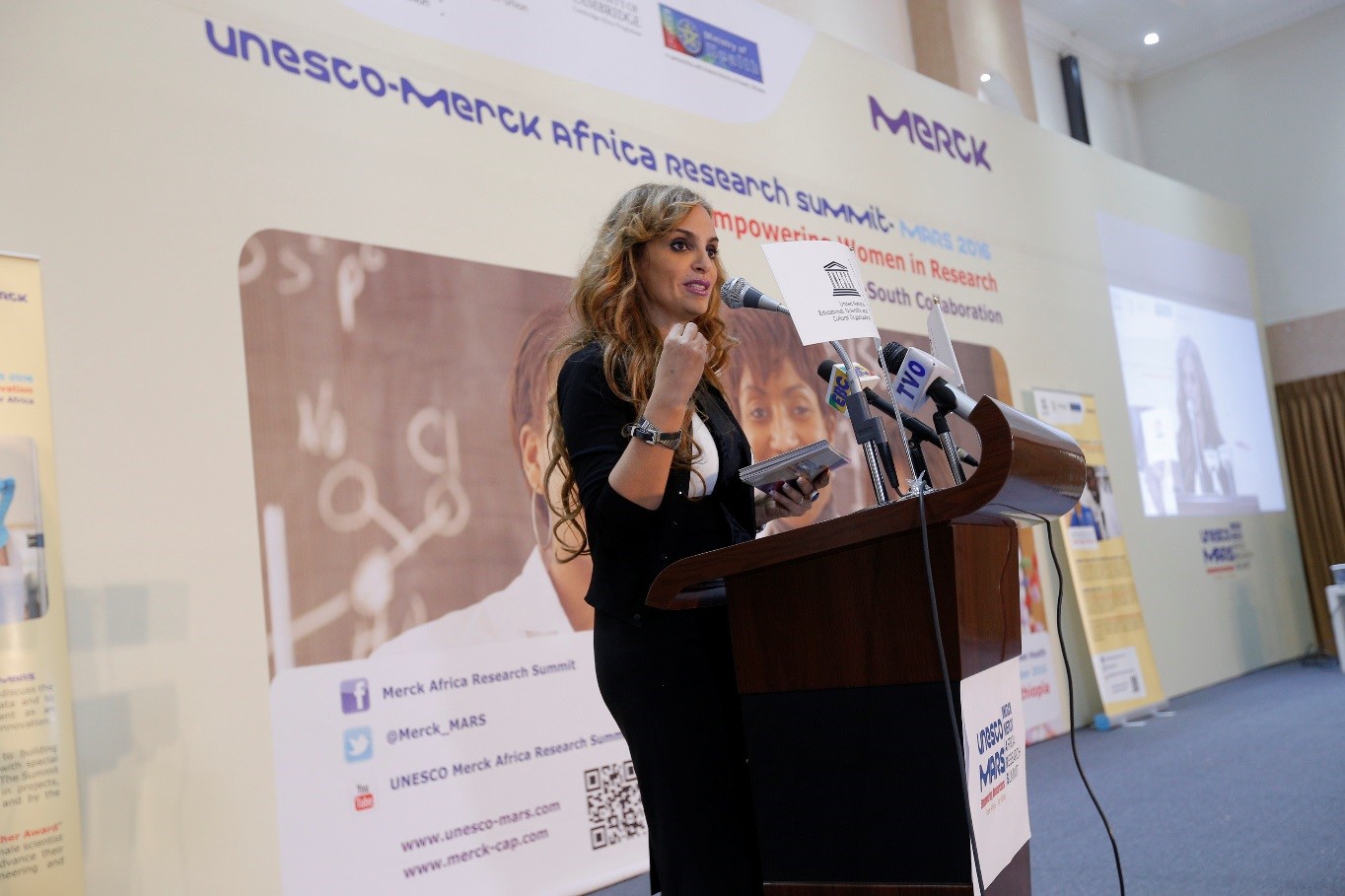
Dr. Rasha Kelej, Chief Social Officer, Merck Healthcare makes her introductory remarks
In her introductory remarks, Dr Rasha Kelej, Chief Social Officer, Merck Healthcare highlighted: “This is the second UNESCO-MARS we are holding after the successful one held in Geneva, Switzerland in 2015. Merck is committed to empowering women in STEM (Science, Technology, Engineering and Mathematics which will consequently contribute to improving the quality of research and science in Africa.”
“Merck’ support for women in research where they are currently under-represented will help bridge the gender gap in STEM in Africa. The five Best Women Researchers awardees from Kenya, Burkina Faso, Gabon, Uganda and Ethiopia were selected by the MARS Scientific Committee based on their high quality contribution to research in their respective fields of health sciences,” Kelej explained.
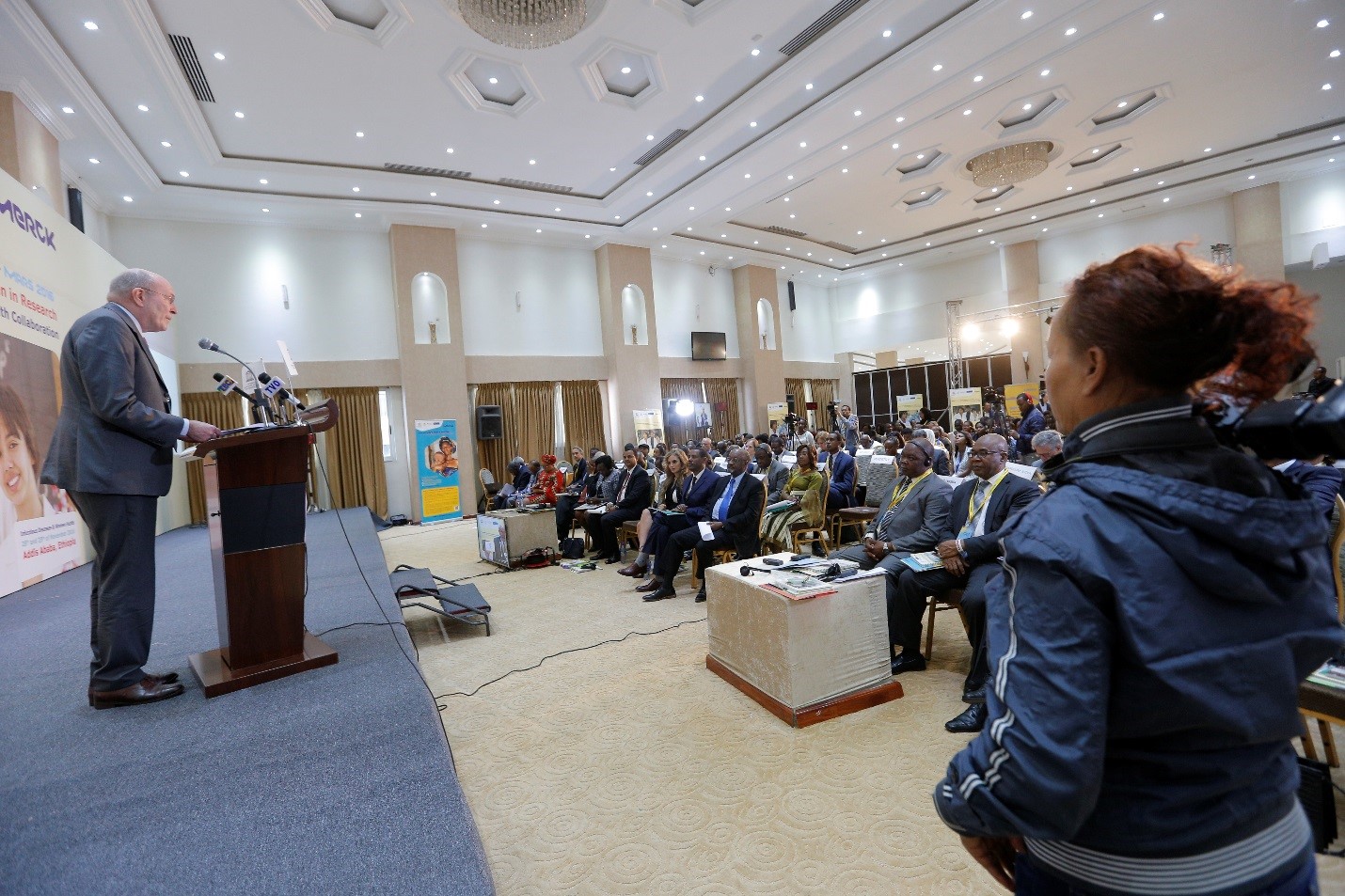
Prof. Dr. Frank Stangenberg-Haverkamp, Chairman of the Executive Board and Family Board of E. Merck KG addressing delegates at the Summit
“To effectively further research, we need to unlock the huge potential of women as in the world only 30% of researchers are female. This emphasizes one of the central objective of this Summit which is to empower women in research. Therefore we are very happy to partner with UNESCO, African Union and Ethiopia Ministry of Health to achieve the important goals of improving women health and empowering women in research, as they are still under-represented in Africa,” Prof. Dr Frank Stangenberg-Haverkamp further affirmed at the inauguration of the Summit.
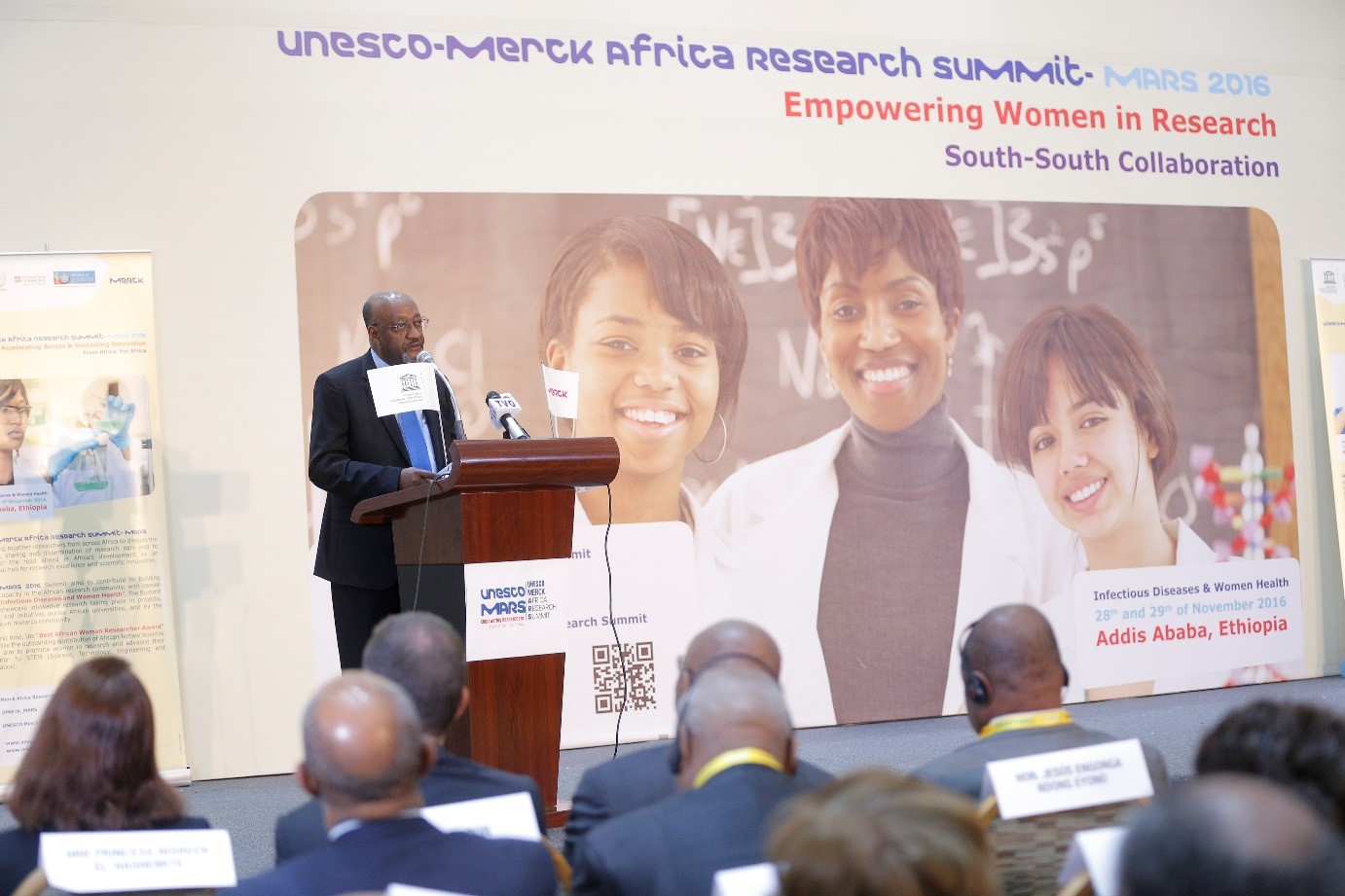
Getchaw Engida, Deputy Director General, UNESCO making his remarks at the inauguration of the Summit
“We appreciate Merck our principal partner for organizing the second edition of UNESCO-MARS to address one of Africa’s critical development challenges - building viable scientific and research capabilities to address our health priorities that is vital in strengthening human resource and institutions of life and medical research,” said Getchaw Engida, Deputy Director General, UNESCO.
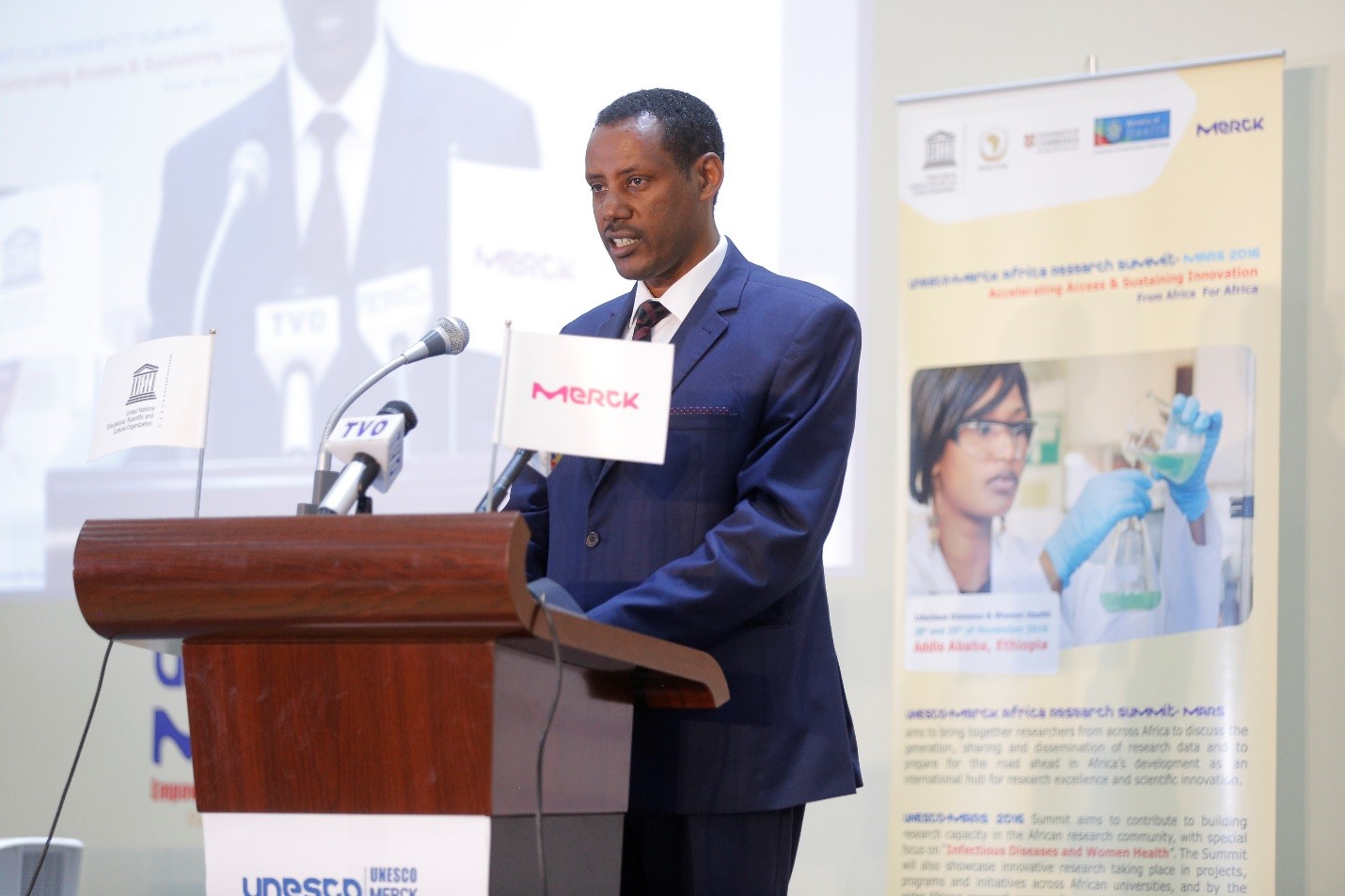
Prof. Yifru Berhane, Minister for Health, Ethiopia
Prof. Yifru Berhane, Minister for Health, Ethiopia, announced in his keynote speech: “We are very happy to partner with Merck, UNESCO and Africa Union to build research capacity in Africa with the focus on young researchers and women researchers and to define policies to enable high quality research in the continent”.
“The awarding during this Summit of the ‘Best Women Researchers’ is commendable. This kind of recognition encourages the development of models for other women to emulate and increase their commitment to engage in research work and provide leadership to the betterment of Africa’s health sector. Female researchers are the key drivers of health in Africa, empowering and advancing their contribution should be a priority in our health sector development plan,” emphasized Prof. Yifru.
Key African Ministers support building research capacity and policy development in the continent
Up to 13 African ministers of Health; Education; Science and Technology and Gender & Social Development participated in two ministerial high level panels at the Summit. The ministers in discussions committed to support the building of research capacity at country and regional level, and the development and enforcement of policies to guide and promote scientific research for the benefit of Africa. They also pledged to enhance efforts to empower women in research. The panel discussions were moderated by Dr Rasha Kelej, Chief Social Officer, Merck Healthcare and Dr Ahmed Fahmi, Program Director, UNESCO.
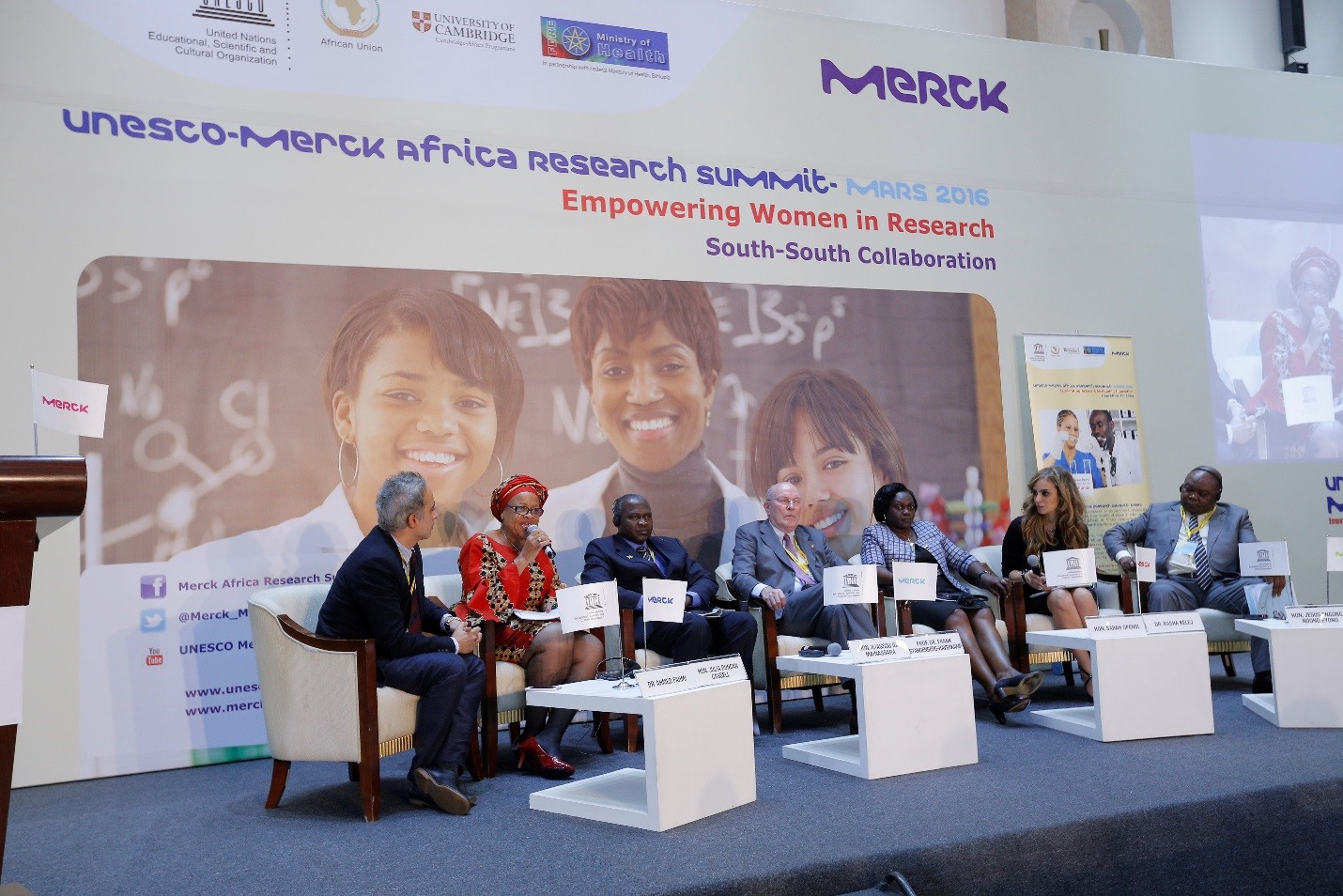
UNESCO-MARS 2016 Ministerial panel on ‘defining interventions to advance research capacity and empower women in research to improve women health in Africa’: From left to right – Ahmed Fahmi, Program Director, UNESCO; Julia Cassell, Minister of Gender and Social Development, Liberia; Idi Illiassou Mainassara, Minister of Public Health, Niger; Prof. Dr Frank Stangenberg-Haverkamp, Chairman Executive Board and Family Board of E.Merck KG; Sara Opendi, Minister of State for Health, Uganda; Rasha Kelej, Chief Social Officer, Merck Healthcare; and Jesus Engonga Ndong, Minister of Education & Science, Equatorial Guinea
The first ministerial high level panel on “Defining interventions to advance research capacity and empower women in research to improve women health in Africa,” involved: Hon. Sarah Opendi, Minister of State for Health, Uganda; Hon. Idi Illiassou Mainassara, Minister of Public Health, Niger; Hon. Julia Cassell, Minister of Gender, Children and Social Development, Liberia; Hon. Jesús Engonga Ndong, Minister of Education & Science, Equatorial Guinea and Prof. Dr Frank Stangenberg-Haverkamp, Chairman of Executive Board and Family Board of E.Merck KG.
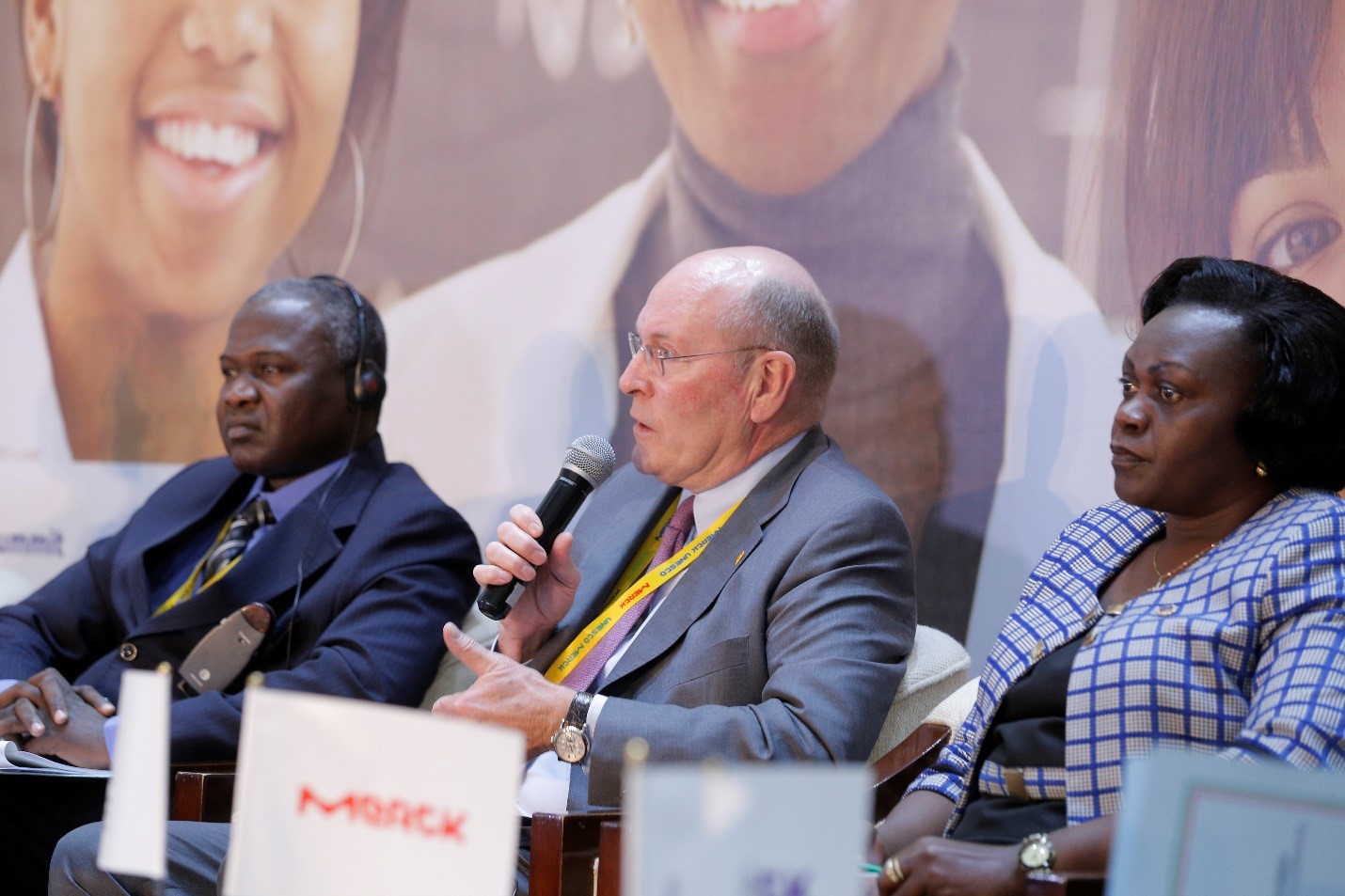
Prof. Frank Stangenberg-Haverkamp, (centre) with Hon. Hon. Idi Illiassou Mainassara, Niger and Hon. Sarah Opendi
“Merck has developed an Africa strategy and we are now in 12 African countries. We have also started our Merck Capacity Advancement Program (CAP) in Africa. We also can support young gifted researchers by passing on the knowledge and experience we have gathered over the 340 years of Merck history. Our main task is to have the CAP program advance capacity in young researchers and promote young gifted scientists, to teach them the cutting edge of research in our R&D hubs and laboratories,” said Prof. Frank Stangenberg-Haverkamp when speaking on how industry can support research.
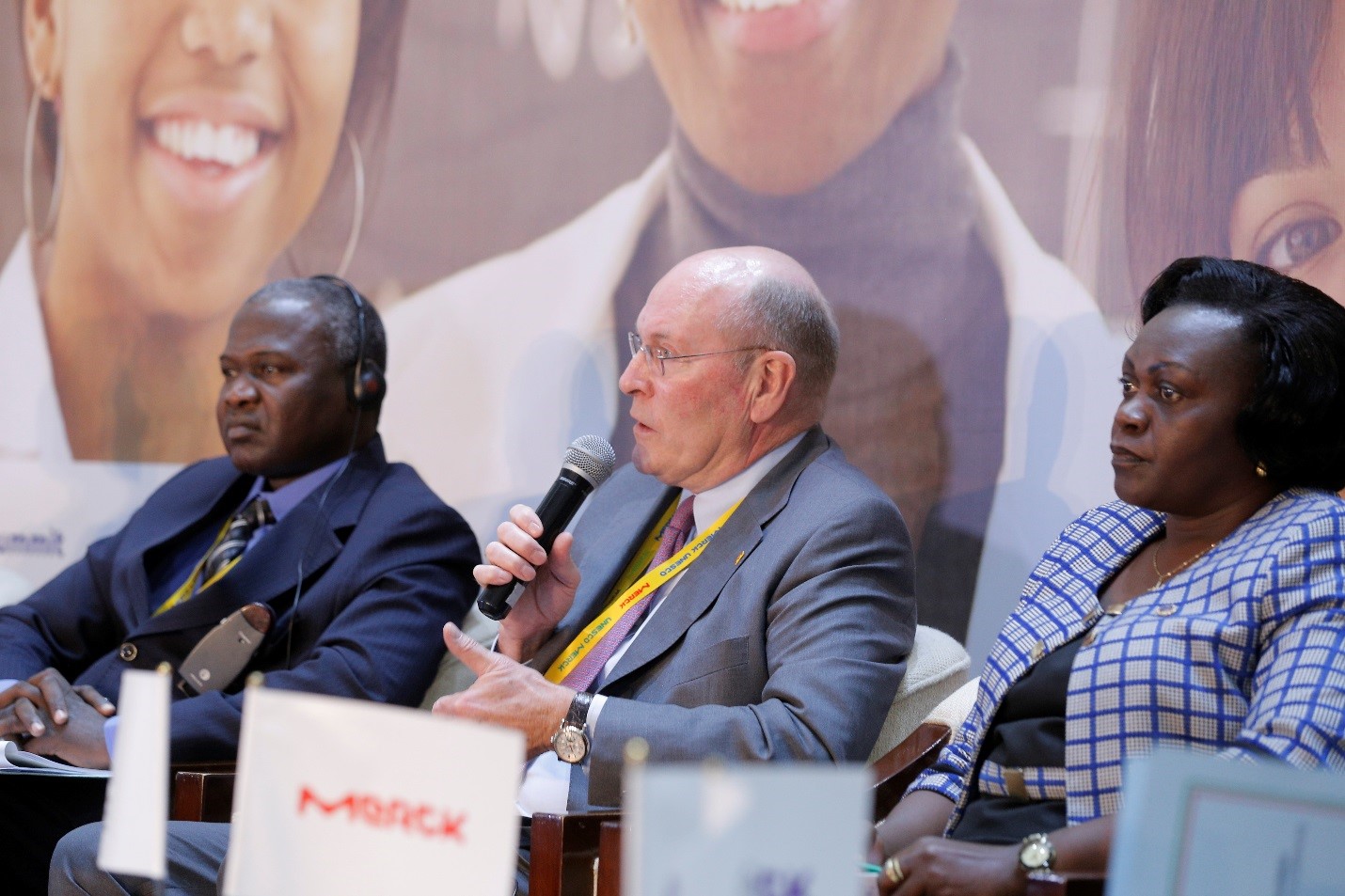
Hon. Sarah Opendi, Uganda with Prof.Dr. Frank Stangenberg-Haverkamp, Merck (centre) and Hon. Idi Illiassou Mainassara
Hon. Sarah Opendi, Minister of State for Health, Uganda said: “In Uganda as a government we have promoted women to undertake sciences by giving them more points at university to bring them at par with the men. We have also come up with a fund to provide scholarships for females in an effort to promote women researchers.”
“We are promoting human resource in science and technology by encouraging young people to undertake sciences and increasing their salaries to motivate them. As governments and policy makers, we need to commit resources to build capacity of individuals and to promote research,” Opendi added.
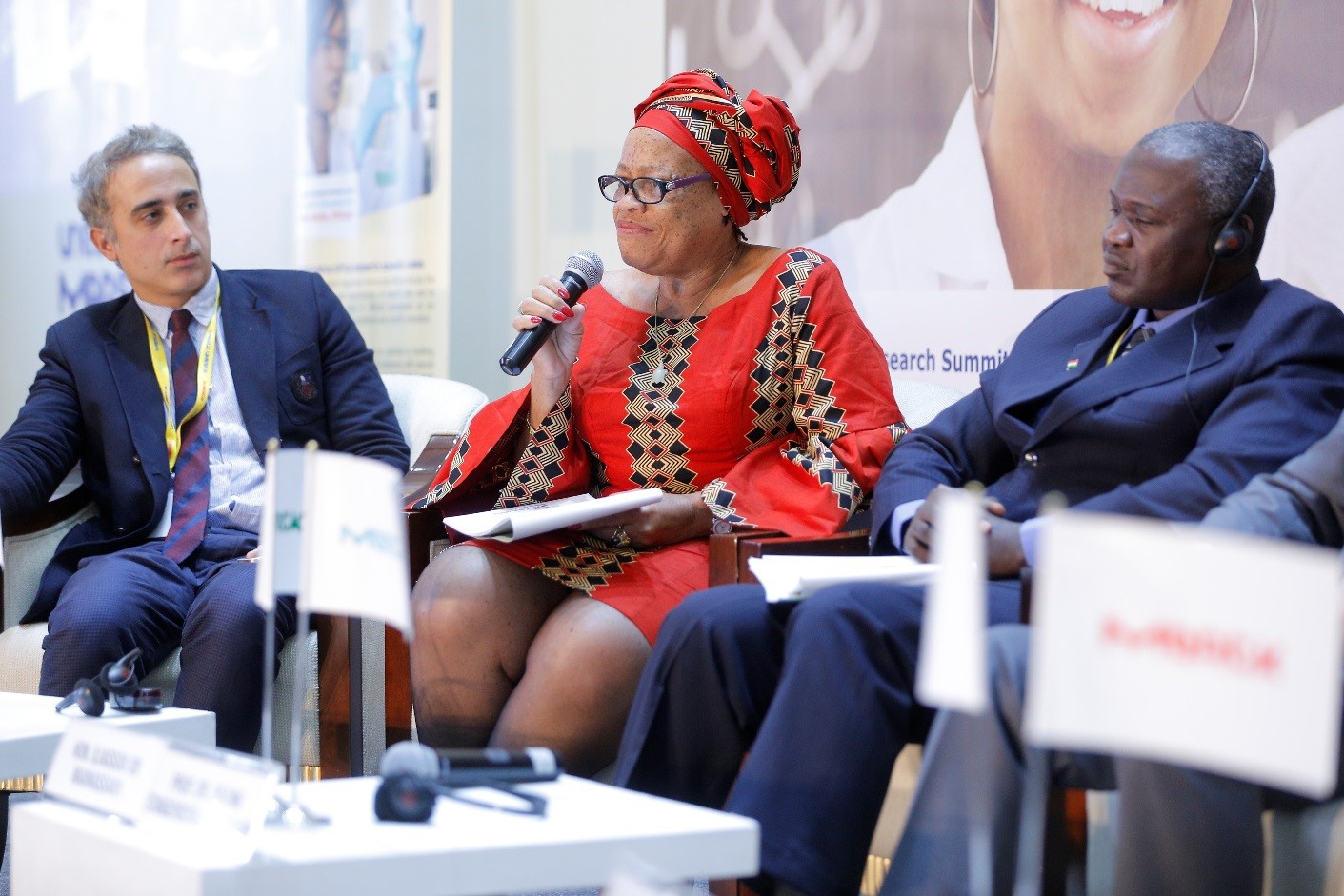
Hon. Julia Cassell, with Hon. Idi Illiassou Mainassara (right), and Ahmed Fahmi, UNESCO
“We appreciate Merck and UNESCO for partnering with African countries to empower women in research. By empowering women, you are empowering a community, you are empowering a country and you are empowering the world at large,” emphasized Hon. Julia Cassell, Minister of Gender, Children and Social Development, Liberia.
“We need to continue empowering women so that we can have more women researchers. SDG goals 3, 4 and 5 are all interlinked - health, education and gender equality - and this need to go hand in hand. Looking at these three goals, UNESCO and Merck are heading in the right direction,” Cassell stated during the ministerial panel discussion.
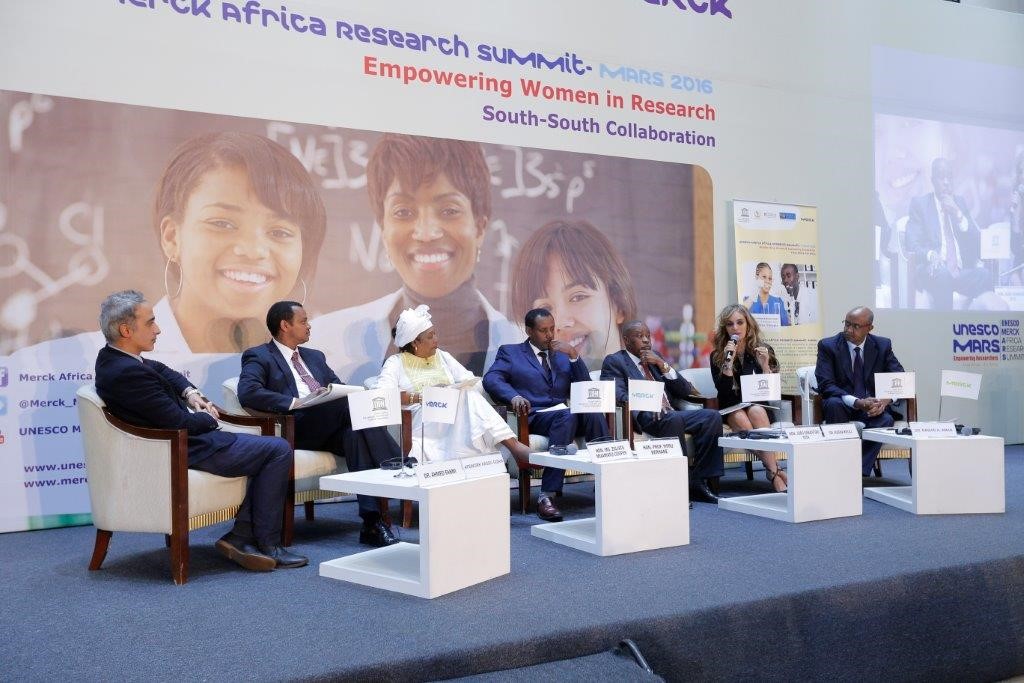
UNESCO-MARS 2016 Ministerial panel on ‘Research and policy making gap in Africa – challenges and opportunities – Africa as a new international hub for research excellence and scientific innovation,’ left to right: Ahmed Fahmi, Program Director, UNESCO; Prof. Afework Kassu Gizaw, Minister of Science and Technology, Ethiopia; Zuliatu Cooper, Deputy Minister of Health and Sanitation, Sierra Leone; Prof. Yifru Berhane, Minister of Health, Ethiopia; Dr. João Sebastião Teta, Secretary of State, Angola; Rasha Kelej, Chief Social Officer, Merck Healthcare and Rashid Aman, Chairman, Kenya National Commission for UNESCO
The second ministerial panel on “Research and policy making gap in Africa – challenges and opportunities – Africa as a new international hub for research excellence and scientific innovation,” included: Hon. Prof. Yifru Berhane, Minister of Health, Ethiopia; Hon. Prof. Afework Kassu Gizaw, Minister of Science and Technology, Ethiopia; Hon. Dr. João Sebastião Teta, Secretary of State, Angola; Hon. Zuliatu Cooper, Deputy Minister of Health and Sanitation, Sierra Leone and Rashid Aman, Chairman, Kenya National Commission for UNESCO.
The ministers highlighted how their governments are supporting research through policies and infrastructure and the challenges they are facing especially in terms of funding, human resource and infrastructure.
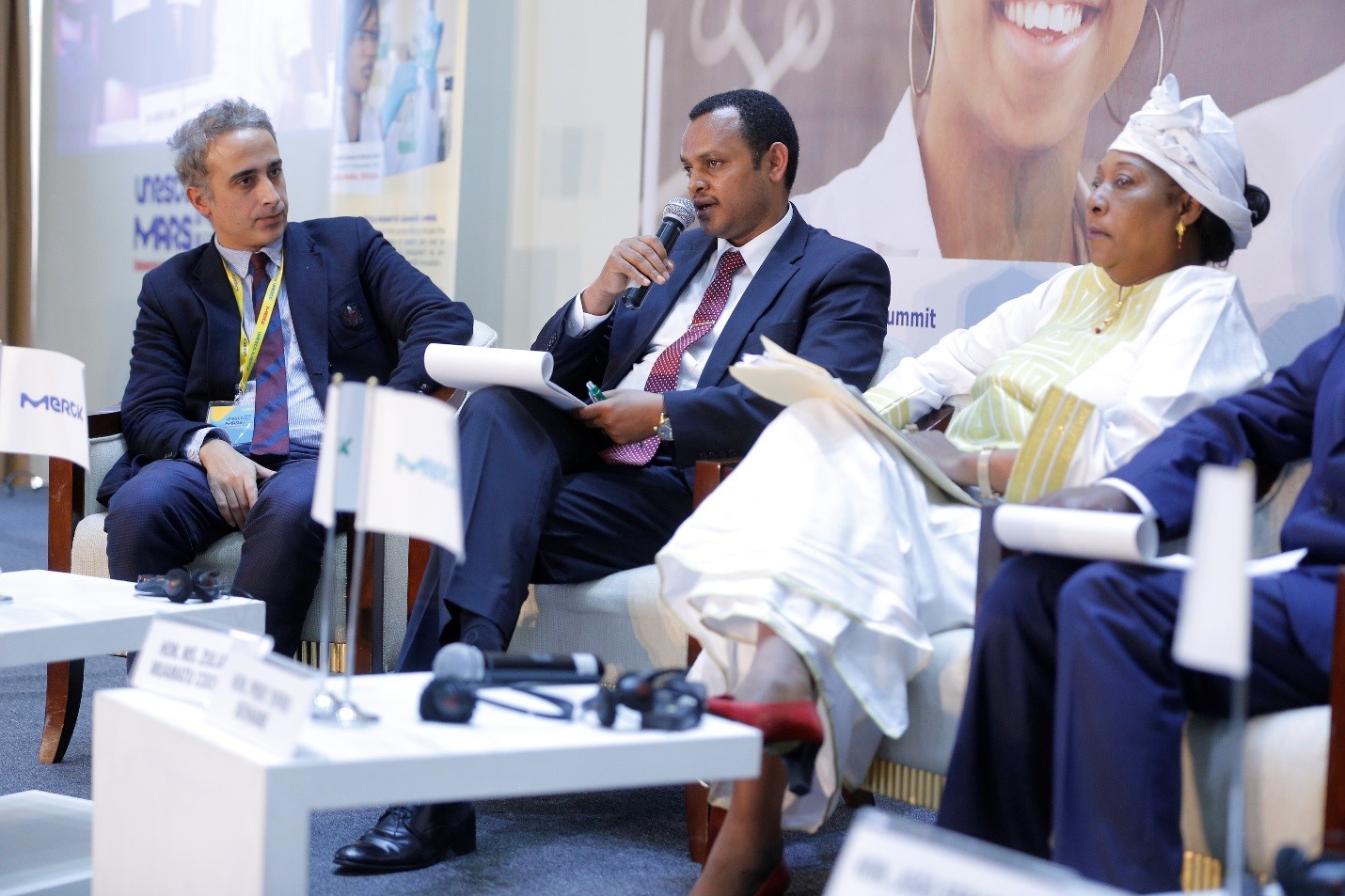
Hon. Prof. Afework Kassu Gizaw (centre), with Ahmed Fahmi, UNESCO and Hon. Zuliatu Cooper
“In Ethiopia, our government supports scientific research and we have a Science and Technology policy enacted in 2012. The government has also expanded its higher education platform and we now have 44 public universities. The universities are the primary centres where we conduct research in any sector. In addition, we also have organizations handling research in different ministries like health, agriculture and industry,” explained Hon. Prof. Afework Kassu Gizaw, Minister of Science and Technology, Ethiopia.
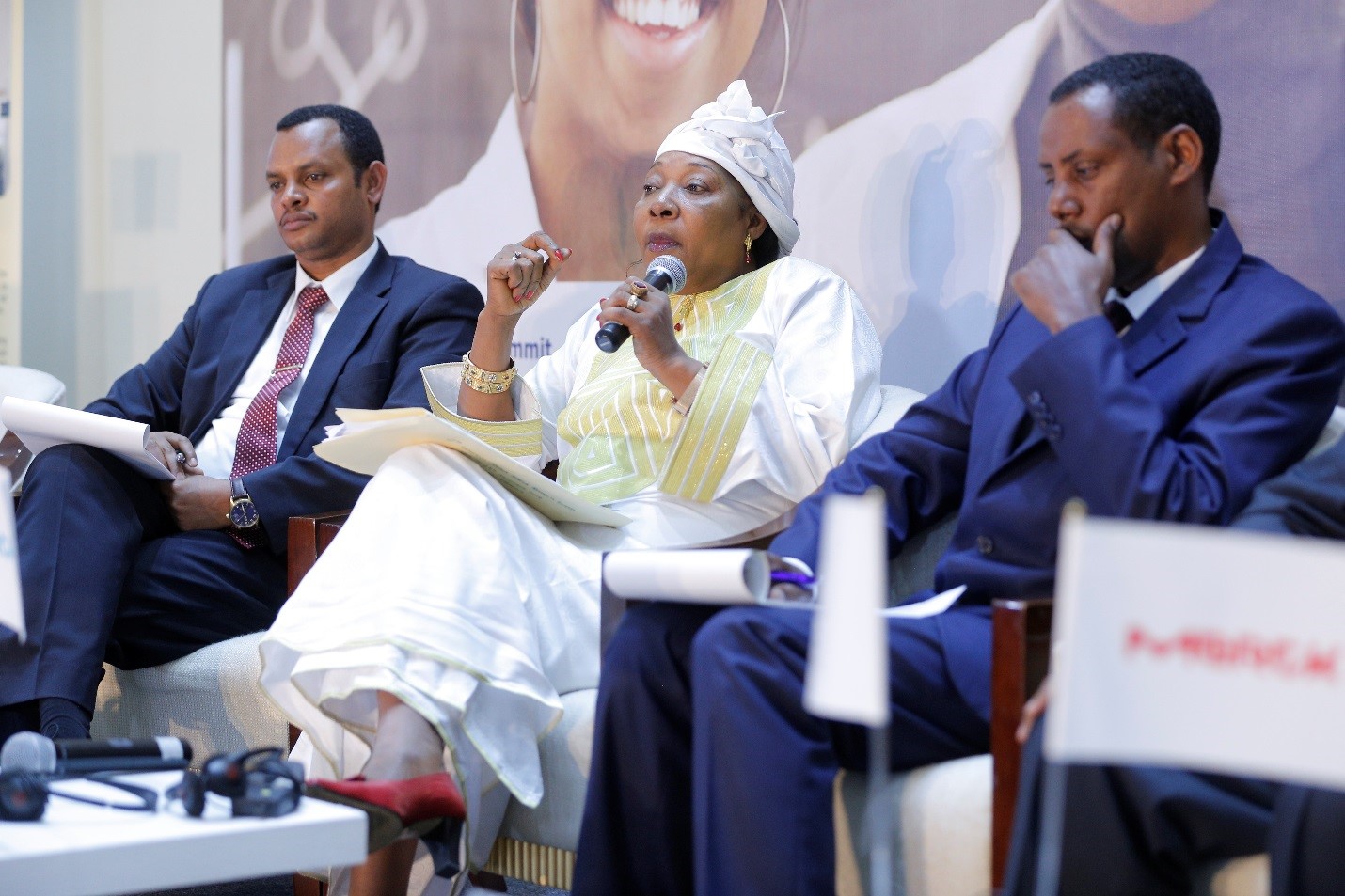
Hon. Zuliatu Cooper (centre), with Hon. Prof. Afework Kassu Gizaw, and Hon. Prof. Yifru Berhane
Hon. Zuliatu Cooper, Deputy Minister of Health and Sanitation, Sierra Leone explained the renewed interest in research in the country following the Ebola outbreak two years ago. “After the Ebola outbreak we now have three different research labs for various outbreaks. Previously the research done in the country was not coordinated and there was no way of knowing what was being done and by who. We now have the Research Ethics Committee to manage information and data on every research being conducted in the country in a coordinated manner.”
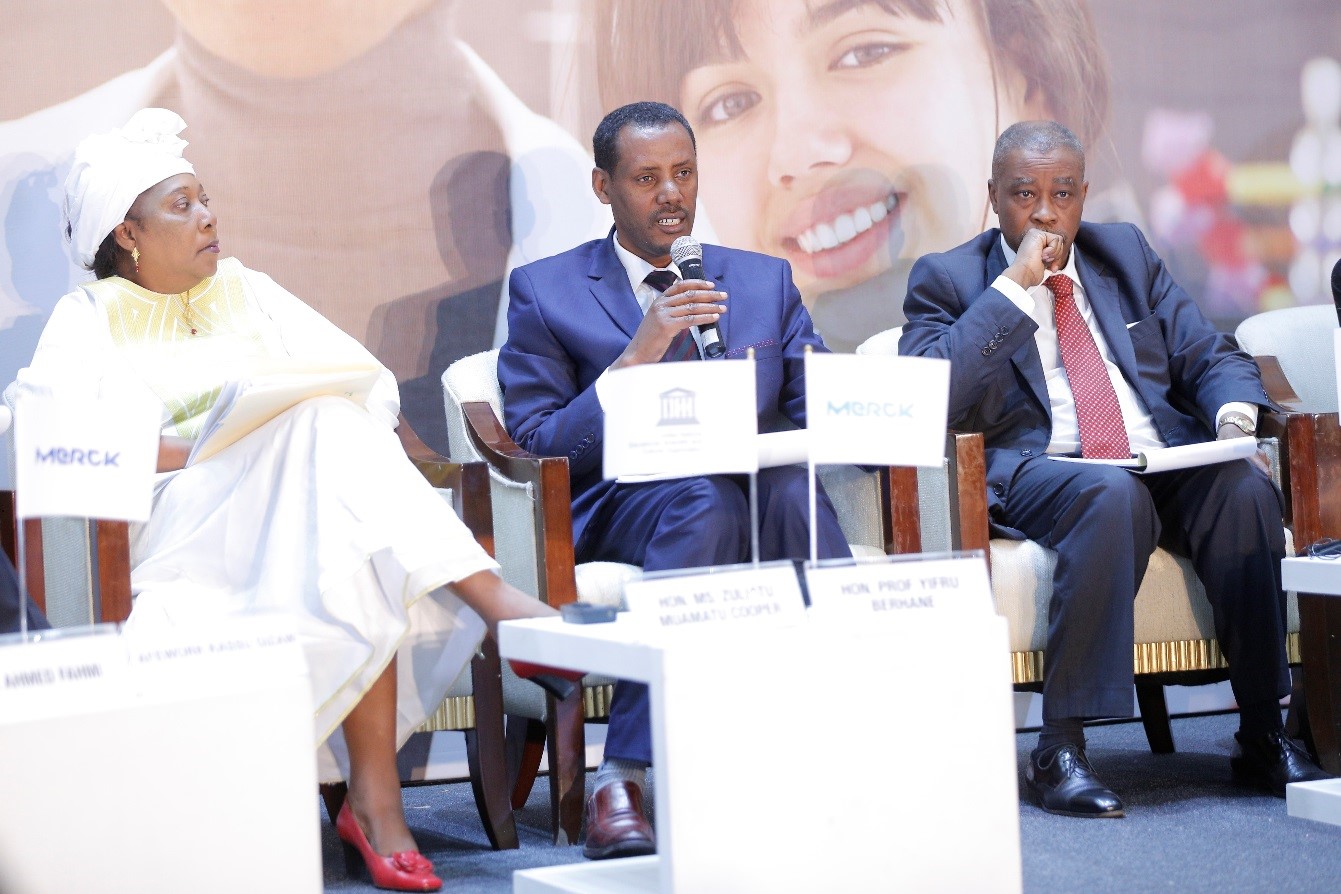
Hon. Prof. Yifru Berhane (center), with Hon. Zuliatu Cooper, and (left) and Hon. Dr. João Sebastião Teta
Speaking on the high prevalence of cancer in Ethiopia and what the government is doing Hon. Prof. Yifru Berhane, the Minister of Health explained: “Cancer as a non-communicable disease has not previously received much attention. But now the Ministry of Health recognises it as an important program and we have developed a strategy and establish chemotherapy and radiotherapy centres in four regions of the country to cope with the increasing numbers of cancer cases. This will put us in a better position to provide care for common cancers in the country. Co-operating with Merck to provide Oncology Fellowship Program for Ethiopian candidates will contribute towards improving access to cancer care in the continent.”
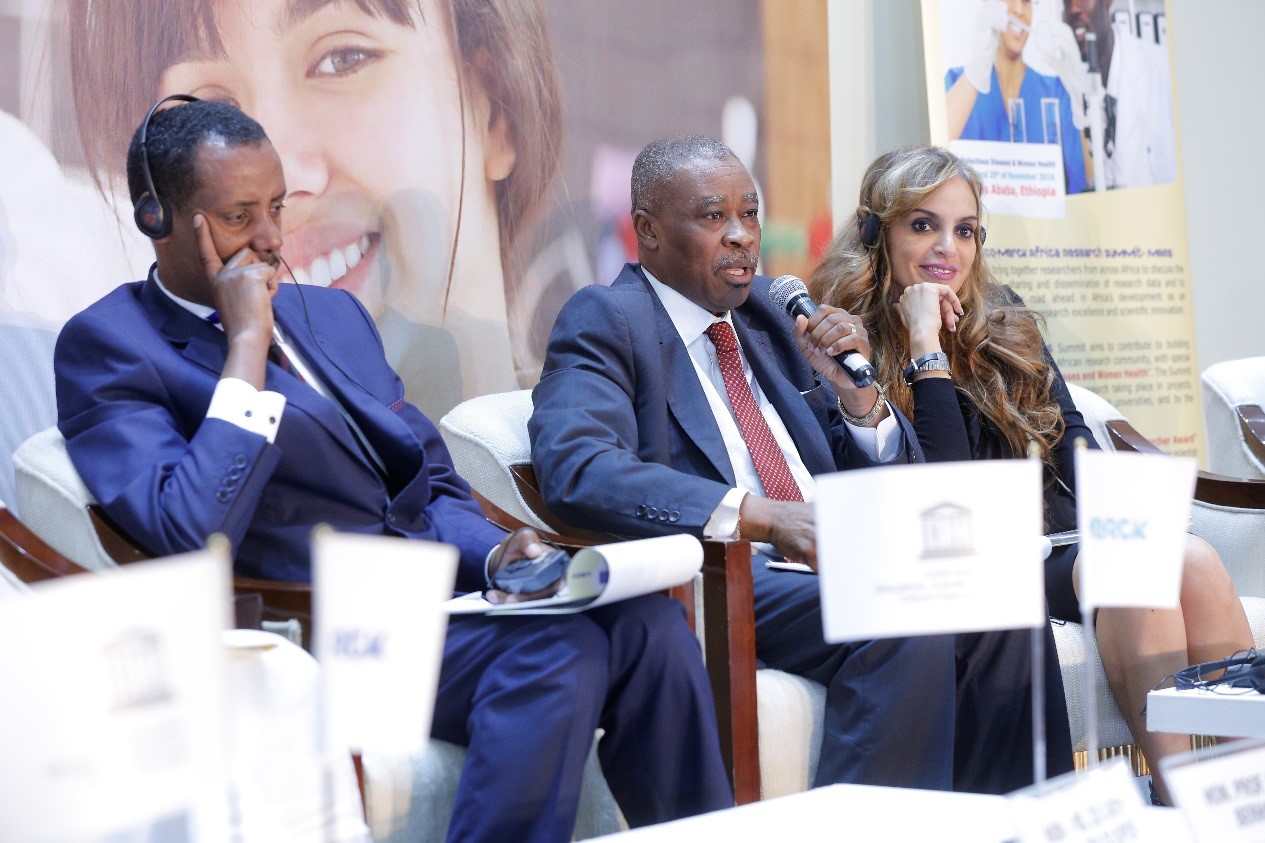
Hon. Dr. João Sebastião Teta (centre) with Hon. Prof. Yifru Berhane, and Dr. Rasha Kelej, Merck
Hon. Dr. João Sebastião Teta, Secretary of State, Angola in support of science and technology and how countries can collaborate said: “As Africans we need to change our mind-set about the importance of science and technology and see it as a main tool to transform our countries. In Angola, we have established the National Commission of Science and Technology with the President as the head. We have also collaborated with South Africa to develop a common program for research as it is more advanced in research than other countries. The co-operation between African countries is very important, the weaker should go to the stronger.”
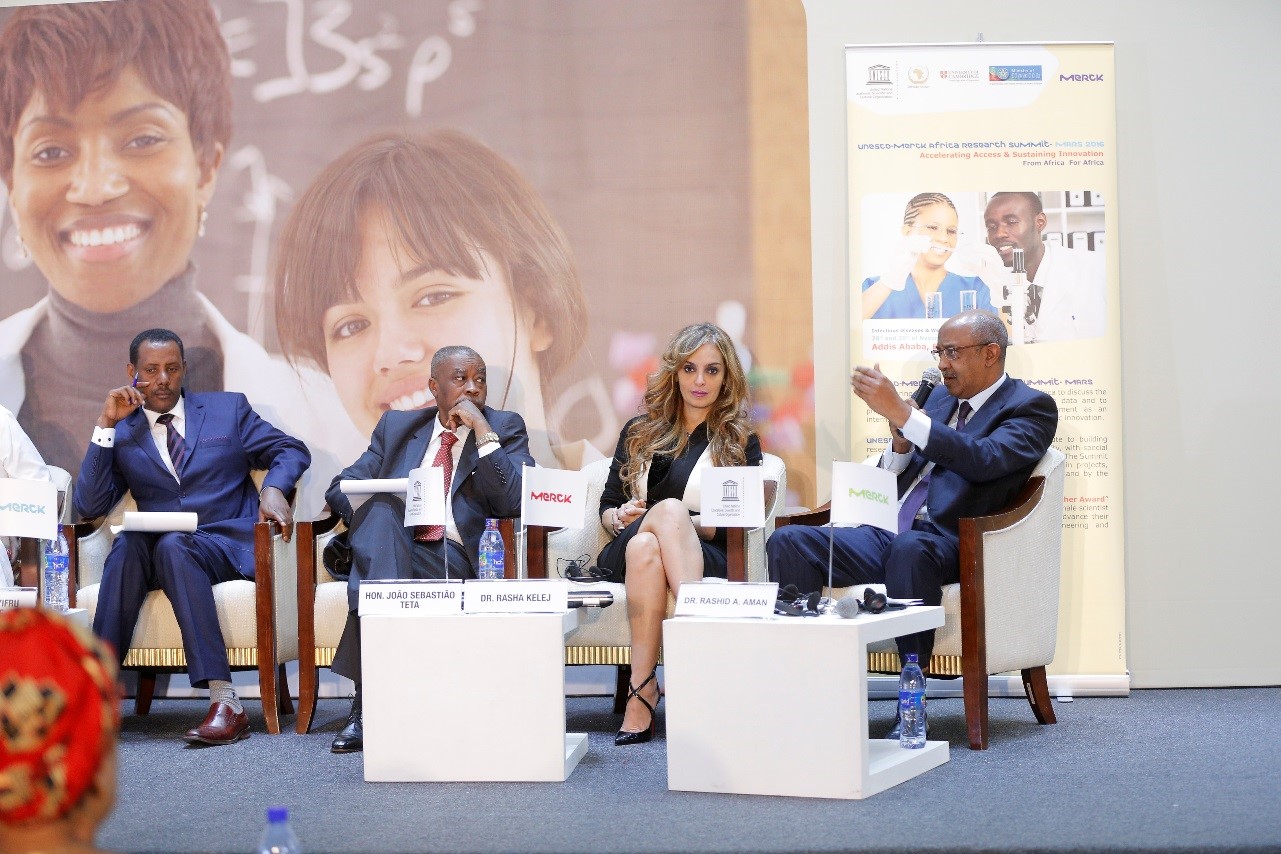
Dr. Rashid Aman (extreme right) with Hon. Prof. Yifru Berhane, Hon. Dr. João Sebastião Teta, and Dr. Rasha Kelej, Merck
At the end of the first day of the Summit, delegates attended the Award Ceremony dinner that saw nine researchers recognised under two categories – ‘Best African Women Researchers Award’ and ‘Best Young African Researchers Award’. The ‘Best African Women Researchers Awards’ with the aim of promoting women in STEM (Science, Technology, Engineering and Mathematics) went to five women researchers from across Africa who were recognized for the quality of their research.
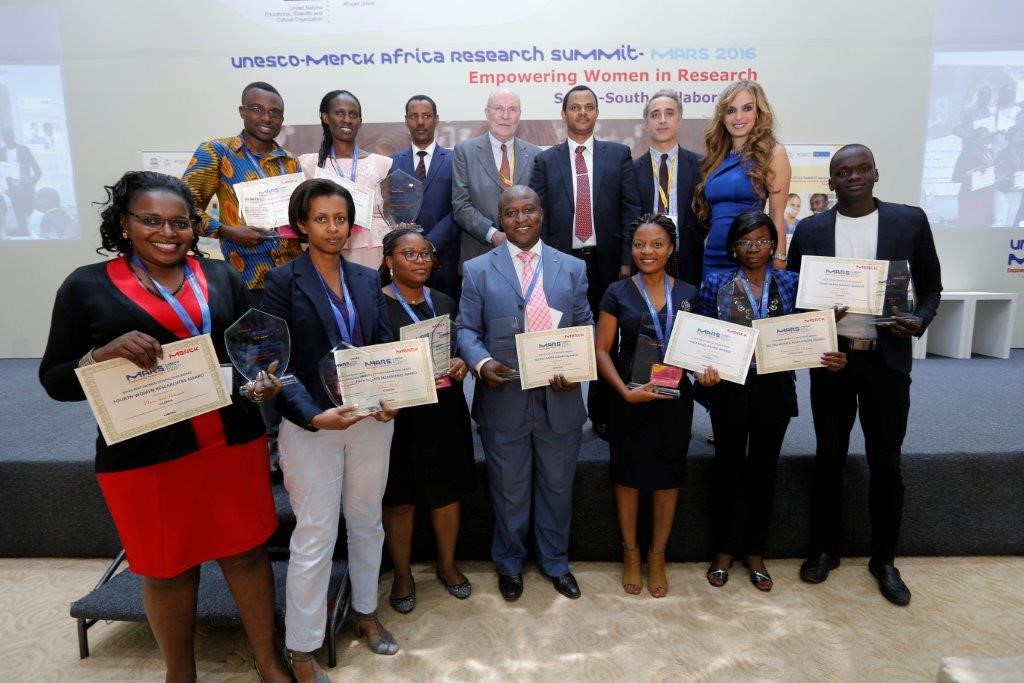
UNESCO-MARS 2016 Award winners: left to right front row- ‘Best African Woman Researcher Award’ 4th place winner Maria Nabaggala, from Infectious Diseases Institute, Uganda; 5th place winner, Martha Zewdie, from Armauer Hansen Research Institute, Ethiopia; 2nd place Best Young African Researcher winner, Constantine Asahngwa, Cameroon Centre for Evidence Based Health Care; Best Young African Researcher 1st place winner Patricia Rantshabeng from University of Botswana; Best African Women Researcher 2nd place winner, Rogomenoma Ouedraogo, Laboratory of Biology and Molecular Genetics University, Burkina Faso; ‘Best Young Researcher Award’ 3rd place winner, Lamin Cham from National Aids Control Program, Gambia; 2nd row: 2nd place Best Young Researcher Award winner, Tinashe Nyazika, University of Zimbabwe; Best African Woman Researcher Award’ 1st place winner, Beatrice Nyagol from Kenya Medical Research Institute, together with Prof. Yifru Berhane, Minister of Health, Ethiopia; Prof. Dr Frank Stangenberg-Haverkamp, Chairman, Executive Board and Family Board of E.Merck KG; Prof. Afework Kassu Gizaw, Minister of Science and Technology, Ethiopia; Ahmed Fahmi, Program Director, UNESCO and Rasha Kelej, Chief Social Officer, Merck Healthcare
About 2016 MARS award winners
‘Best African Women Researchers Award’
- 1st Place: Beatrice Nyagol, Kenya Medical Research Institute, Kenya
- 2nd Place: Rogomenoma Ouedraogo, Laboratory of Biology and Molecular Genetics University, Burkina Faso
- 3rd Place: Sandrine Liabagui ep Assangaboua, Ecole Doctorale Regionale d’Afrique Centrale, Franceville, Gabon
- 4th Place: Maria Nabaggala, Infectious Diseases Institute, Uganda
- 5th Place: Martha Zewdie, Armauer Hansen Research Institute, Ethiopia
‘Best Young African Researchers Award’
- 1st Place: Patricia Rantshabeng, University of Botswana, Botswana
- 2nd Place: Constantine Asahngwa, Cameroon Centre for Evidence Based Health Care
- 3rd Place: Tinashe Nyazika, University of Zimbabwe, Zimbabwe
Lamin Cham, National Aids Control Program, Gambia
To meet the UNESCO-MARS 2016 award winners read here
Summit addressed both Francophone and Anglophone Africa
UNESCO–MARS 2016 has brought together more than 200 researchers from more than 35 African countries to discuss the generation, sharing and dissemination of research data and to prepare for the road ahead in developing Africa as an international hub for research excellence and scientific innovation.
Of the 200 researchers who attended the Summit, 60% were women. This contributed to one of the main objectives of UNESCO-MARS, which is empowering women in research.
The Summit for the first time, also addressed both Francophone and Anglophone Africa and attracted researchers from 11 French speaking countries of Senegal, Rwanda, Gabon, Benin, Congo, Cameroon, Gambia, Burkina Faso, Morocco, Niger, Burundi. Researchers from English speaking countries are drawn from Namibia, South Africa, Ghana, Kenya, Zimbabwe, Nigeria, Sierra Leone, Zambia, Tanzania, Uganda, Malawi, Liberia, Botswana and Ethiopia. In addition, researchers from Arabic and Portuguese speaking countries such as Egypt, Angola and Mozambique also attended.
Researchers benefit from diverse scientific sessions
The 2nd UNESCO MARS Summit provided a unique opportunity for Africa's young and talented scientists to share their research output and findings with the top echelon of scientists from Africa and abroad. It was also an opportunity for networking and career development, while presenting a platform where young scientists are able to discuss the enabling environment for better research among others.
“The researchers who attended the two-day Summit benefitted from diverse and rich scientific sessions that focused on the relation between infectious diseases and cancer in women; untreated infectious diseases and the high prevalence of infertility in Africa; and participated in discussions to identify scientific research priorities for evolving health needs to address infectious diseases such as Malaria, Schistosomiasis and Zika in relation to women health,” Rasha Kelej stated.
Knowledge exchange platform to boost research capacity launched
During the UNESCO-MARS 2016, the Merck online research community blog (www.merck-cap.com) was launched to enable young researchers to exchange experiences and knowledge with their peers and with established researchers in Africa and beyond.
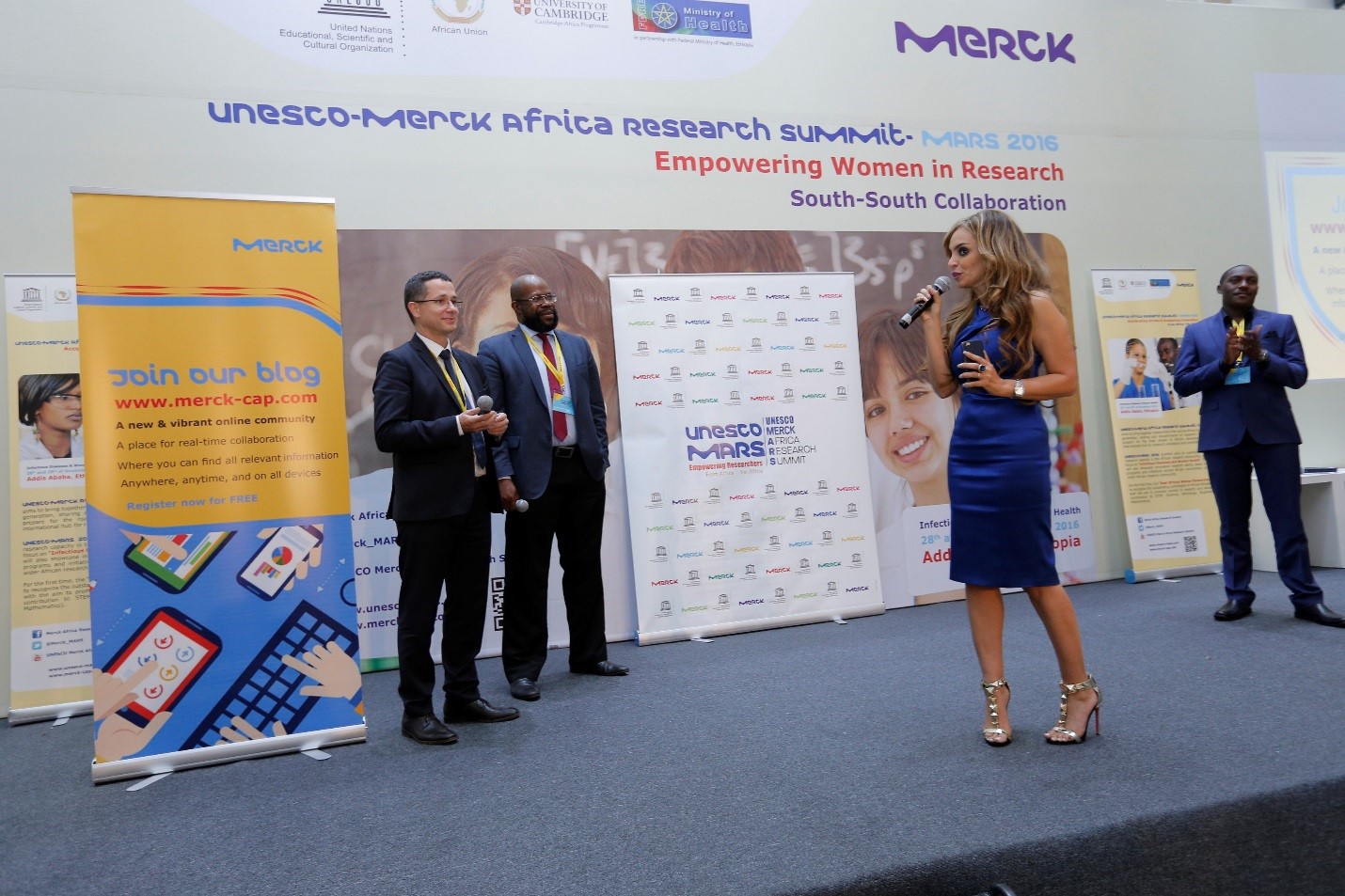
Dr. Rasha Kelej, Chief Social Officer, Merck Healthcare introduces the Merck CAP online blog as Olivier Drury and Michael Johnson from Business Technology at Merck look on
The first UNESCO-Merck Africa Research Summit was successfully organized and held in Geneva, Switzerland in October 2015 with the focus on Emergent Infectious Diseases such as Ebola. The third UNESCO- MARS is scheduled to be held in 2017 in Africa.
Join Merck CAP Research on-line community to exchange experiences and information with other researchers in Africa and beyond www.merck-cap.com free registration
Join the conversation on building research capacity in Africa through UNESCO-MARS at:
 Merck Africa Research Summit
Merck Africa Research Summit
 @Merck_MARS
@Merck_MARS
 Merck Africa Research Summit
Merck Africa Research Summit
For more information on the UNESCO-MARS 2016 Summit go to: